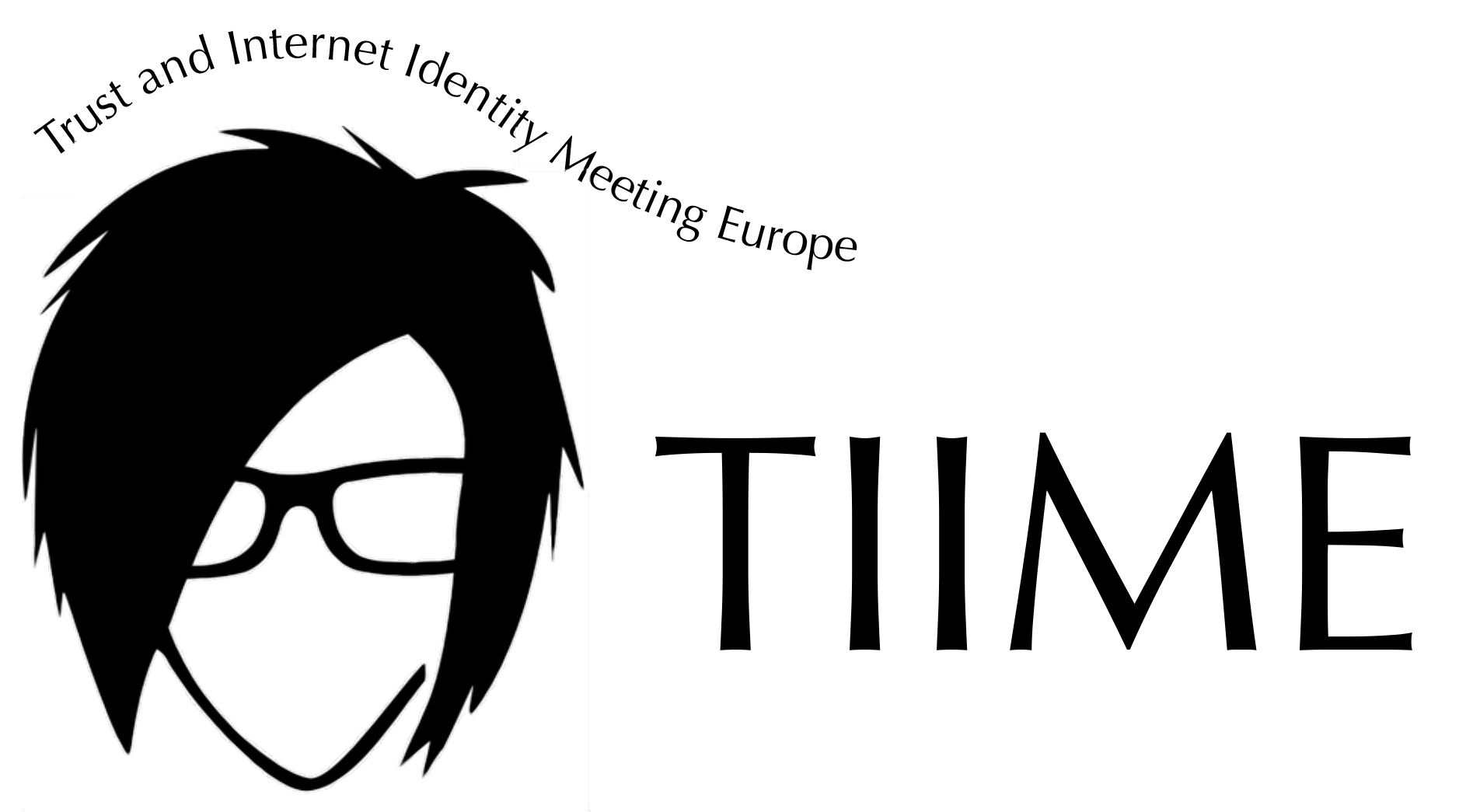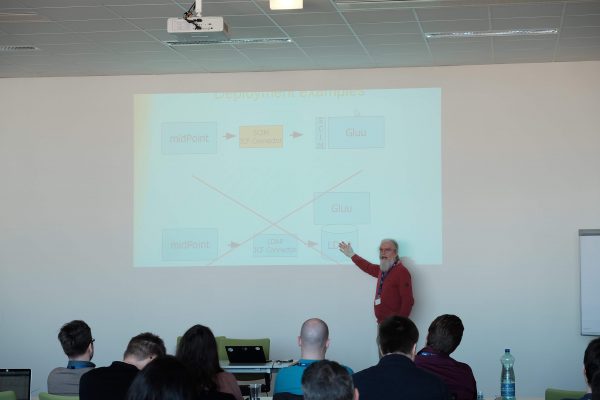Interoperbility in Focus of This Year’s TIIME

February 17 – 20 2020, Vienna
As part of the TIIME – Trust and Internet Identity Meeting Europe on February 17 2020 in Vienna, Austria, DAASI International organised a (un-) conference on Interoperability and Open Source Identity and Access Management.
After the success of last year’s OSS IAM (un-) conference DAASI International CEO Peter Gietz wanted to host this hybrid model for a second time. The hybrid model combines advantages of the traditional conference with the advantages of an unconference: each topic on the preset agenda was introduced in one or two short presentation(s), or as a point of discussion. Similar to an unconference, however, the majority of the time was dedicated to an open discussion to advance each topic, respectively.
Once more, this year’s TIIME was able to recruit key representatives of the open source IAM ecosystem as speakers; i.e. Evolveum’s Raovan Semancic, who is the lead developer for midPoint; Mike Schwarz, Managing Director and developer for Gluu; Benjamin Oshrin, the architect of the open source project COmanage; and Ivan Kanakarakis, executive project manager for the open source project Identity Python. DAASI International contributed a total of three presentations as well:
-
Advantages and disadvantages of the ICF connector framework (OpenICF, ConnID)
Speaker: David Hübner -
Employing SCIM as potential lingua franca for open source identity management
Speaker: Peter Gietz -
Implementing the proxy-based architecture as per recommendation in the AARC blueprint architecture which enables single sign-on beyond the common standard protocols SAML and OpenID Connect. Introducing three solutions based on open source implementations Shibboleth or SimpleSAMLPhP (Satosa).
Speaker: David Hübner

Peter Gietz when asked about his active involvement in promoting this kind of model: “With a few exceptions, open source IAM is advanced by small companies. Hence, only working groups make it possible to compete with closed source providers, at all. Yet, cooperation can only take place given there is interoperability on the level of technical protocols of the software solutions, as well as on a business process and model level. This (un-) conference provides a platform for an open debate on precisely these dimensions of interoperability. I am especially looking forward to moderating the last slot on open source business models which will essentially be a continuation of the debate initiated by my contribution last year.”
Lastly, this year’s TIIIME was co-hosted with the 15th workshop of the FIM4R Working Group. FIM4R (Federated Identity Management for Research) includes research communities and infrastructures that share a common interest in federated identity management for their research cyber infrastructures. Download the interesting contributions here.
The review of the event with further topics, pictures and content for download will be available soon on tiimeworkshop.eu/topics.
Subscribe to our newsletter
Recent Posts
- Between Aspiration and Reality: Europe’s Struggle for Digital Independence
- 25 Years of DAASI International – and We’re Only Just Getting Started
- Open letter to Claudia Plattner (BSI): Digital sovereignty for Germany and Europe is possible!
- Ubuntu packages for the Shibboleth Service Provider available again
- DAASI International celebrates its anniversary with conference, ceremony, and new company management.


